2015 Unity Consulo Support in One Post

Although Unity support in Consulo appeared at the end of 2014 (the first commit ) - most of the features appeared in 2015 . The following are significant features that were implemented:
For those who missed my posts:
Consulo is a fork of IntelliJ IDEA Community Edition, which has .NET support (to be precise, C #, which is currently being developed), Java and NodeJS.
Unity Event Methods
At the end of 2014, there was support for markers for Unity Event Methods, such as Update / Start and others. A quick way was added to add methods via completion (including methods with parameters):
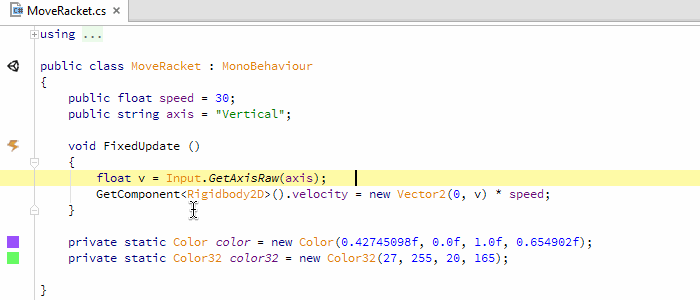
Project import
This is one of Unity's biggest challenges. Up to this point, there was no difference between Unity modules such as Assembly-CSharp-firstpass , Assembly-CSharp . For example, everywhere there was access to UnityEditor classes - and you could write code that did not compile:
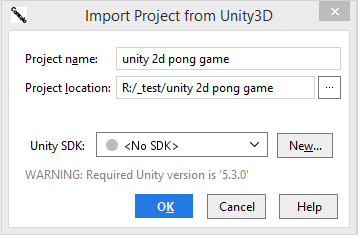
Working with .meta files
Prior to this change, .meta files were visible in the project tree and they could be hidden only by globally ignoring files by extension, however, this is not very correct, because This is not a pure Unity IDE. Additionally, there were problems with VCS, as when deleting core files, .meta files remained. The following logic is now implemented:
- You can independently enable / disable the display of .meta files for existing files
- Meta files without parent files are always displayed
- When deleting or changing the main file through the IDE, the corresponding meta file is also deleted or changed
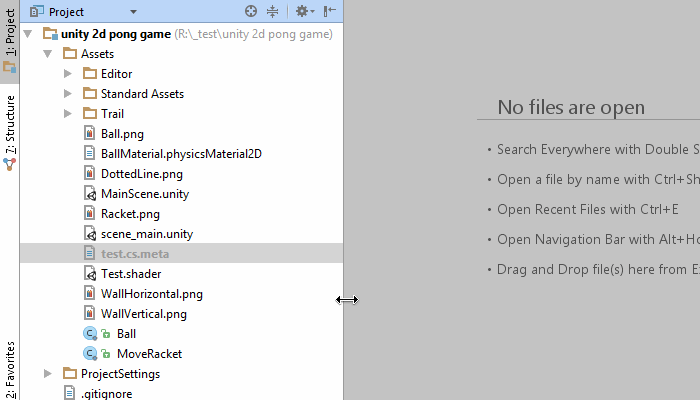
Debugging in the editor
Debugger support was present from the very beginning, but it could only be used for the standalone build of the game, i.e. It was necessary to build and run the game, outside the Unity editor. It was not very convenient and now, after April 15, 2015 , you can safely do attach to the editor, and get all the features of the debugger (such as changing the value of variables in runtime, or stepping )
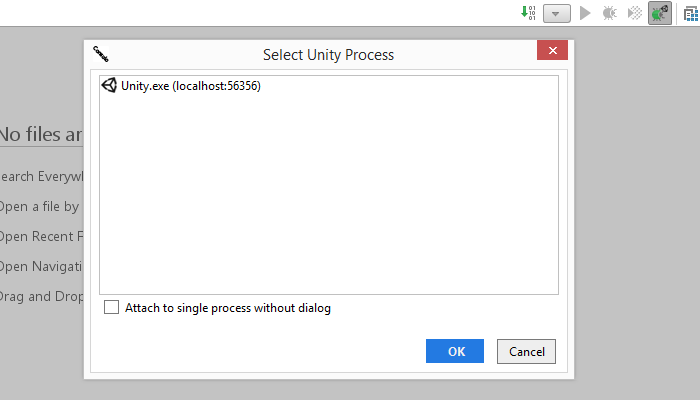
Shaderlab
Unity has its own language for writing shaders. Syntax support, auto-completion, file navigation and basic refactoring have been added.

UnityScript
Although C # predominates when writing Unity scripts, don't forget about UnityScript. Since UnityScript support is based on a JavaScript plugin (raw enough), the possibilities here are very limited:
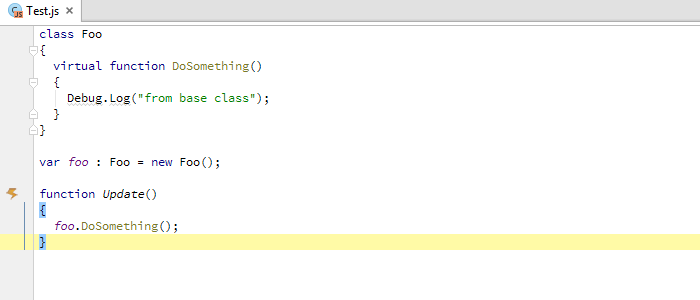
However, now UnityScript elements are available in auto-completion inside C # classes:
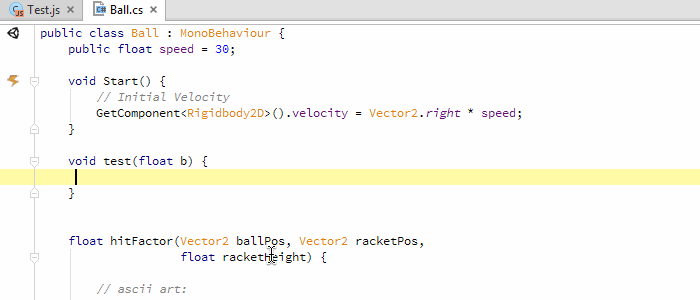
C # classes in Unity scenes
Many are familiar with the problem when a breakpoint does not work. It seems to be there, but it does not work, although it should. After you believe in the supernatural, it turns out that you just forgot to place the class in the scene. This situation is one of the reasons for adding the ability to display in which scene the given C # class is used. This feature is available only for YML scenes, binary scenes are not supported, because the file format is closed, sad but true ...
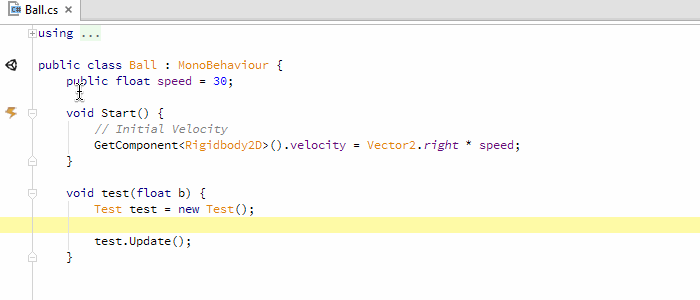
UnityEditor Integration
Previously, it was not possible to open a file in Consulo by double-clicking in the editor. This plugin is designed to add this feature.
Total
This is an almost complete list of what has been added to Consulo from Unity . But in addition to Unity , other areas are developing:
- C # - a lot has been redone, optimized, added support for C # 6
- JavaScript and NodeJS - improved debugging, support for Mocha
- ... and much more - but this is a completely different story ...
Thanks to everyone who uses Consulo
